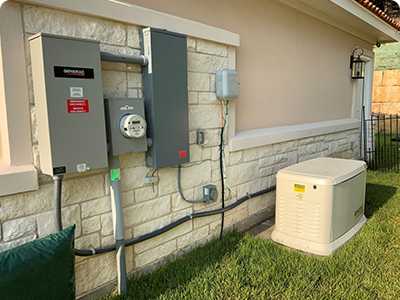Electrical systems form the backbone of modern living, powering everything from essential appliances to complex machinery. Yet, many people are unaware of the key differences between residential and commercial electrical systems.
This distinction is crucial, particularly for property owners and businesses seeking to ensure their systems are safe, efficient, and compliant with local codes. In this article, we’ll discuss all about electrical systems, shedding light on why they are designed differently and how to maintain them.
The Basics of Electrical Systems
Both residential and commercial electrical systems serve the same purpose: delivering electricity to power lights, devices, and equipment. However, the scope and demand vary significantly between homes and commercial properties. This variation drives wiring, components, installation practices, and maintenance differences. Understanding these aspects can help homeowners and business operators make informed decisions about their electrical needs.
Differences Between Residential and Commercial Electrical Systems
- Power Demand and Voltage Requirements
The power demand is the most noticeable difference between residential and commercial systems.
Residential systems typically operate on single-phase power, which is suitable for lower loads required by homes. This setup provides sufficient energy for common household appliances such as refrigerators, washers, and lighting.
On the other hand, commercial systems often use three-phase power, which is more efficient for higher energy demands. This type of system can handle larger equipment, such as industrial-grade HVAC units, elevators, or heavy machinery. The three-phase setup offers a steady power flow, reducing equipment strain risk and ensuring commercial operations’ efficiency.
- Wiring Design and Materials
Wiring in residential settings is usually simpler in design and easier to install. It often involves smaller gauge wires made of copper or aluminum and is typically insulated with a protective sheath. These wires are hidden behind walls to maintain aesthetic appeal and ensure safety for occupants.
Commercial wiring, by contrast, is designed for durability and flexibility. Businesses often require more complex wiring systems to accommodate higher voltage and circuits. The wires are usually encased in tougher materials, such as metal conduits or plastic tubing, to withstand exposure in open or industrial environments. This visible wiring also allows for easier inspection and maintenance in commercial spaces.
- Load Distribution and Circuit Breakers
In homes, the electrical load is relatively evenly distributed across several circuits. Circuit breaker panels in residential properties are straightforward and designed to support the modest power needs of household appliances and electronics.
Commercial electrical systems, however, require advanced load management. A commercial breaker panel often features multiple subpanels to support extensive wiring networks and heavy-duty machinery. This setup minimizes the risk of overloading circuits, which could lead to downtime or safety hazards.
Challenges in Maintaining Electrical Systems
While residential electrical systems are relatively low-maintenance, they still require periodic inspections to identify wear, aging wires, or faulty outlets. Due to their complexity, commercial systems demand more rigorous upkeep. Regular inspections by licensed electricians are essential to prevent issues like overloaded circuits, equipment damage, or electrical hazards that could disrupt operations or endanger employees.
When troubleshooting issues, it’s important to consult professionals experienced in residential or commercial systems. Attempting DIY fixes, especially in commercial setups, can lead to dangerous consequences, including equipment failure or violations of building codes.
Choosing the Right Electrician
Whether you’re dealing with residential or commercial systems, hiring the right electrician is vital. Electricians specializing in residential projects are well-versed in installing outlets, wiring for home theaters, and upgrading breaker panels. Commercial electricians, however, bring expertise in designing complex systems, managing higher voltage demands, and working with industrial-grade equipment.
When selecting an electrician, always ensure they are licensed, insured, and experienced in the type of system you require. A trustworthy professional will conduct a thorough assessment, explain your options clearly, and adhere to the latest safety codes.
Future Trends in Electrical Systems
Both residential and commercial electrical systems are evolving to meet modern demands. Homes increasingly incorporate innovative technologies, such as automated lighting and energy-efficient appliances. Commercial properties are embracing innovations like solar power integration, energy storage systems, and advanced monitoring tools to reduce energy costs and improve sustainability.
Staying informed about these trends ensures property owners can plan upgrades that enhance efficiency, safety, and convenience. Exploring resources covering all about electrical systems can provide valuable insights.
The Importance of Professional Guidance
Recognizing the difference between residential and commercial electrical systems is essential for ensuring safety, efficiency, and compliance. Whether you are a homeowner enhancing your panel or a business owner overseeing a complicated electrical network, collaborating with qualified experts guarantees your system functions optimally.
For those seeking reliable electrical services, it’s important to partner with experts who can address your needs. Consider contacting trusted professionals to learn all about electrical systems and how to ensure your property’s safety and functionality.
By prioritizing the right approach to your electrical system, you can enjoy peace of mind, knowing your home or business is equipped to meet today’s demands while being prepared for future advancements.

